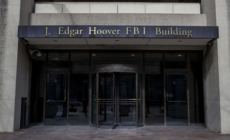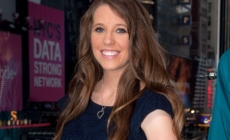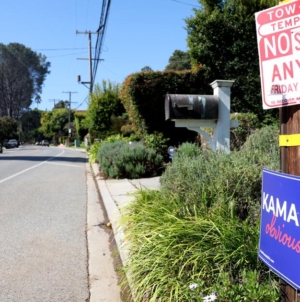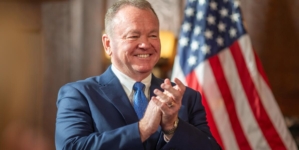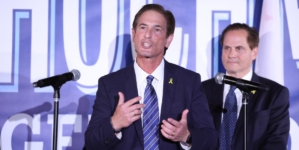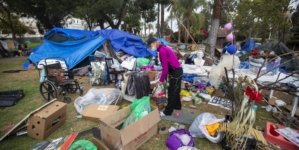-
Violent attack on Israeli soccer fans was targeted, officials say - 9 mins ago
-
2024 NFL odds: AFC North sees huge shift after Thursday night result - 18 mins ago
-
South Korean President Yoon Suk Yeol’s biggest problem isn’t North Korea - 26 mins ago
-
In Kamala Harris’ L.A. neighborhood, low-key quiet and cautious optimism - 35 mins ago
-
Mubi cancels film festival in Turkey after Daniel Craig film ‘Queer’ is banned - 58 mins ago
-
Is it time to jump on the Steelers hype train? | Speak - about 1 hour ago
-
FBI Investigates Racist Texts Sent Across US After the Election - about 1 hour ago
-
Incoming LAPD chief’s proposed salary cut amid Police Commission drama - about 1 hour ago
-
Hugh Grant movie slams AI; director warns ‘it might kill us all’ - 2 hours ago
-
Ohio State’s defense regains its swagger by ‘going back to the basics’ - 2 hours ago
Michael Flood’s fight against food insecurity persists post-COVID
Michael Flood, photographed at the Los Angeles Times in El Segundo on Sept. 8.
About a month after COVID-19 locked down most of the state in the spring of 2020, Debbie Deck, who runs a neighborhood food pantry, decided to stay open when so many had shut down. But most of her volunteers had gone home and the pantry was quickly running out of food.
At the same time, the need at her pantry had more than quintupled — from 2,500 people a month to 14,000. Families from as far away as Ventura and south Orange County traveled to the West Valley Food Pantry in Woodland Hills.

Discover the changemakers who are shaping every cultural corner of Los Angeles. This week we bring you The Civic Center, a collection that includes a groundbreaking mayor, a housing advocate, a giver of food and others who are the backbone of Los Angeles. Come back each Sunday for another installment.
Desperate, she called Michael Flood, the longtime director of the Los Angeles Regional Food Bank. Flood himself was in the midst of attempting to feed more than twice as many people as he had pre-pandemic.
“Michael, I’m in trouble. I need help,” Deck told him.
In the early days of the COVID-19 pandemic, bereft of staples, neighborhood grocery stores that usually donated to the pantry no longer could, she explained to him. In addition, many of her volunteers were scared to leave their homes.
“Hang on,” Flood told her. “I’ll get back to you.”
Not long after that call, Deck started fielding calls from people wanting to help. The Smart & Final Charitable Foundation pulled up with an 18-wheeler full of food. Amazon Fresh, which had to postpone its grand opening due to the pandemic, donated thousands of pounds of meat and produce. Workers from a nearby hospital volunteered to help Deck establish drive-through food distribution.
“We were able to stay open all through COVID and it was really because of Michael’s connections,” Deck said.
Flood, 61, who has led the food bank for more than 20 years, used his deep connections with private donors and local, state and national government officials to ramp up efforts to serve the growing number of people who needed food during the pandemic.
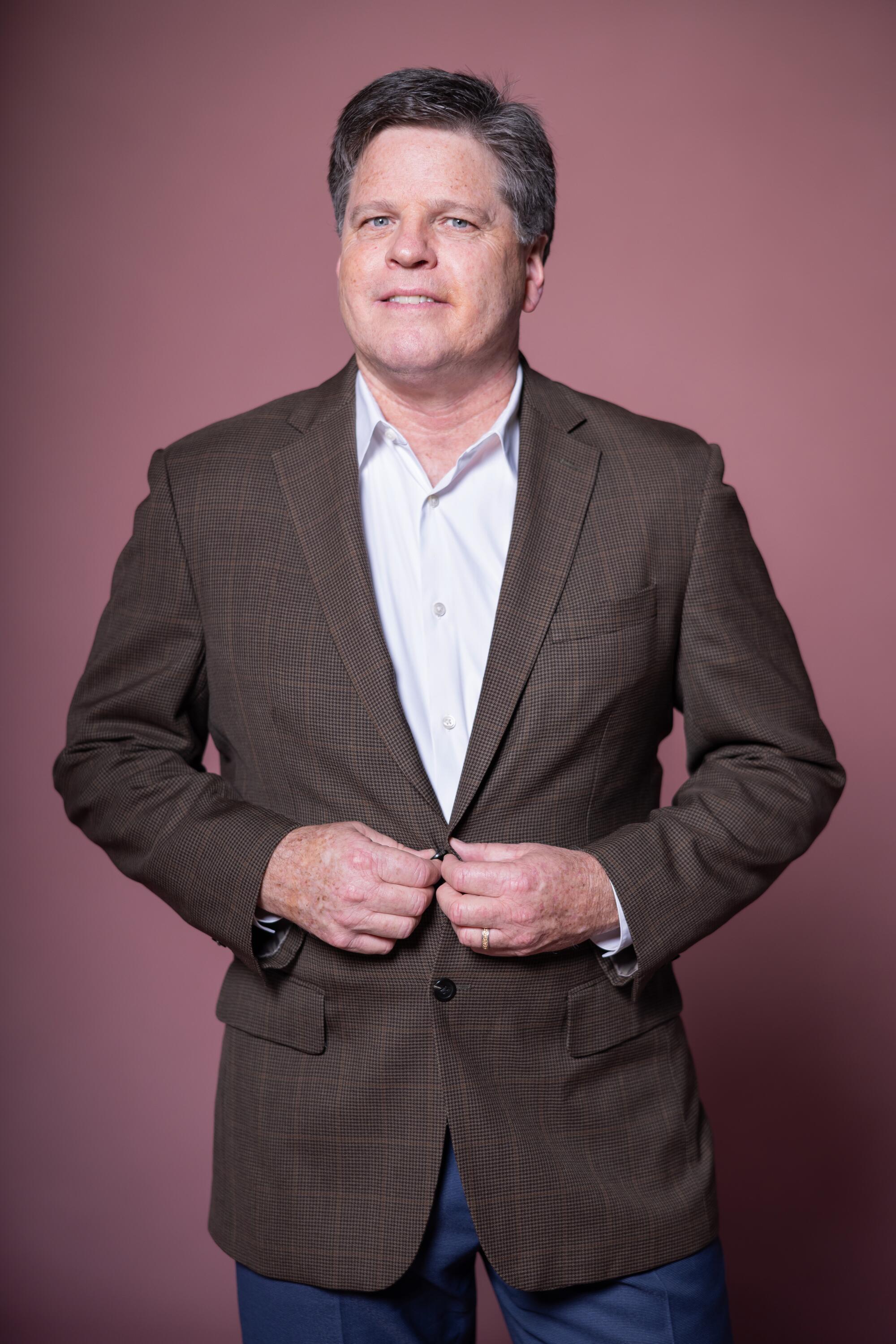
His relationships with Los Angeles County officials allowed the food bank to host large-scale food distributions at huge venues, such as the Hollywood Bowl. And although the intense early days of the pandemic are now in the past, Flood said the demand for food remains high. Food inflation and pandemic-era programs coming to an end are just some of the reasons so many in the county need help.
Currently, Flood and his team — in coordination with a network of more than 600 partner agencies, including soup kitchens, homeless shelters and senior programs — feed about 900,000 people every month.
“The need is still there,” he said.
More from L.A. Influential
Source link






